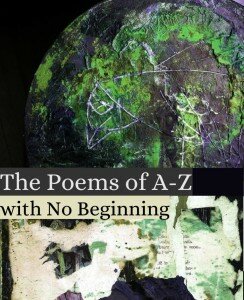“Dear Mark” by Martin Rock
Brooklyn Arts Press, 2013
ISBN 978-1936767199
When teaching poetry to middle school students, “ekphrasis” was often our go-to source of instant inspiration. Many kids freeze at open writing, and actively rebel against instructions (rightfully so), but when presented with an image, film, song, or other piece of art to write against, opinions would fly and reflect around the room.
Which isn’t to say that ekphrastic writing is easy. As something to dig from, great lines can be mined, but there’s no guarantee. To really connect with a work, to entwine your contribution as inseparably as possible, is a next-level challenge for the ekphrastic writer. With Dear Mark, a chapbook recently published by the Brooklyn Arts Press, poet Martin Rock opens a dialogue with the work of visual artist Mark Rothko, with engaging results.
One of the barriers of ekphrastic writing can be the need for the reader to have both artistic elements in front of them. A great piece seeks to surpass this boundary, creating something that doesn’t require standing on the shoulders of another work, though the context may still be helpful or at least interesting. Each of Rock’s poems stems from a single Rothko painting, from 1949 through 1968. These paintings are often easily summed up by their titles, like No. 20, Deep Red and Black and are composed of squares and rectangles atop other squares and rectangles, pure shapes distilled into abstraction.
Rock takes the inspired move of providing simple line drawing recreations of the paintings and utilizing their titles as those of his poems as well. The discussion between works is then more accessible for the reader, though of course these aren’t facsimiles of Rothko’s paintings. In fact, they’re further abstracted and simplified, no stand-ins for the real things. But even these shadows of the work that Rock is referencing and engaging can be of immense assistance to the reader of this chapbook.
Rock’s goals are separate from Rothko’s. Hence the title, Dear Mark, indicating that these are correspondences rather than direct interpretations. For each poem, the text confronts the painting, and the reader can flick between them to see how the poem is influenced. Then again, while useful and interesting, Rock’s poems more than stand on their own.
The future has four horizons:
_______________the Gate,
_____the Echo, the Landlord,&the Mansion.
_______________Open the incinerator
_____that is your mouth&and we shall enter as bread.
~from Blue, Green, & Brown, 1952
Rock finds horizons, open spaces, structures, mouths, and much more in the boxes Rothko provides. These could be general interpretations, arguably any object could be drawn from such general shapes, but Rock isn’t looking to make 1:1 relationships. His poems aren’t equally abstract as the paintings, but unlimited nonetheless, looking to create their own realities and exist within them. His language jumps from sentence to sentence, creating boxes within them, the threads between tangential at best but of course related by their very juxtaposition.
As Rothko’s paintings are almost all structure, Rock abandons narrative as a framing device and instead alights on imagination:
a segment of the worm
__________that eats through the body.The ancients painted themselves,
__________their walls: one vanishedinto the other. We watch
__________them move through the screen,each one of the faces
__________tormented to be the sky.You have disappeared
__________a feral cat into the pain.~from Ochre & Red on Red, 1954
The conversation may be one sided, but Rock isn’t interested in merely interpreting Rothko’s paintings. He engages with them, contributes his own poetic flair, and takes and gives equally from his source material. He writes of the absurd, the internal, the local, from sources other than Rothko as denoted throughout the book, drawing together a nexus of influence to bring about sharp, multi-faced poems.
The mushroom cloud
is also a clown face
& a skeleton dances
to an invisible marionette~from Untitled, 1957
The mushroom clown, the skeleton puppet, a morbid circus that expresses the anxiety of contemporary life, we see that Rock isn’t limiting himself to Rothko’s painting. His experience, thoughts, and imagination are weaving with Rothko, creating vivid poetry that’s all his own, even if it would have been impossible without Rothko’s input.













